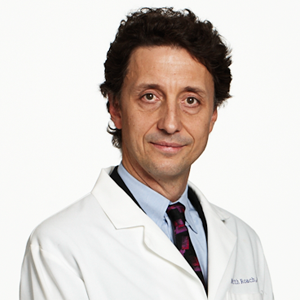To Your Good Health: Medication and lifestyle changes are first treatment for heart problems

Keith Roach, M.D., syndicated columnist
DEAR DR. ROACH: About a month ago, I had pain in my chest, so I went to the emergency room, where I was admitted. My blood pressure was in the 200 range, and they did an echocardiogram and a stress test. Both came out negative, but the cardiologist did an angiogram, and they found out that I have clogged arteries. They told me they couldn’t put in a stent because the artery was too small. They put me on medication: aspirin, Imdur, carvedilol and atorvastatin 80 mg. I quit smoking. What else can I do? — L.L.
ANSWER: Coronary artery disease — blockages in the arteries of the heart — remains the most dangerous condition in the developed world for both men and women. Most women don’t realize it is much more likely a cause of death than breast (or any other) cancer. Any blockage in the arteries of the heart need to be treated aggressively.
Heart blockages are always treated with medication, but they are also often treated by opening up the arteries. This is most typically done by a balloon procedure to open the blockage, followed by placement of a metal stent, which keeps the artery from closing up right away. Surgery is much less commonly done now, and is reserved for people with blockage in the left main coronary artery, as well as a handful of other situations.
How much benefit comes from stenting an artery remains controversial. A recent study suggested minimal benefit in people with stable disease when added to appropriate medical therapy, which is what you are on — aspirin, a beta blocker and high-dose statin are very effective at preventing a heart attack. People with more severe blockages in several areas seem to benefit more from stent or bypass surgery than those with fewer, less severe lesions. The judgment of your cardiologist is critical, and if they don’t want to do stenting or feel it’s not technically feasible, then medical therapy is an appropriate (and still very good) choice.
There is much you can do to help! Quitting smoking is the most important, but a more plant-based diet and regular, moderate exercise have large benefits in reducing heart (and other) risks.
DEAR DR. ROACH: I have seborrheic dermatitis in my ear canal opening. I have been treating it with steroid ointment, but it is not very effective. It’s my understanding that there is no cure for this condition. It is very irritating and uncomfortable. Do you know of a more effective way of treating this condition? — R.J.W.
ANSWER: Seborrheic dermatitis causes flaky skin, especially in oily areas like the scalp, face and ear canal. Many people have it.
Topical corticosteroids are a common treatment. Since it isn’t helping, there are other options. I defer these to my colleagues in dermatology, and may include ciclopirox, tacrolimus and phototherapy. However, it may be as simple as trying a different and perhaps more potent steroid cream. Your dermatologist will do a careful exam to be sure of the diagnosis.
***
DEAR DR. ROACH: There is much information about the spread of COVID germs from coughing, sneezing, speaking, etc. However, I have not seen anything about two other ways that could also spread the germs. Could you please address these in your column?
1. Spitting: My husband (and many others) spits on the ground frequently, especially during exercise.
2. Disposal of tissues: After my husband blows his nose, he will drop them on the floor and build a pile to take to the trash when he gets up. He also will drop them on the floor of the car below his seat until he gets back home.
I have asked him to refrain from both of these practices, but he continues. I also think these two unsanitary practices spread other germs as well. Please clarify. — Anon.
ANSWER: That’s not merely unpleasant, it is a possible way of transmitting viruses. It also fails any basic level of acceptable behavior.
Viruses can live for long periods of time in wet conditions, such as a wet tissue. Once completely dry, viruses become noninfectious within hours (or possibly a few days), but cleaning with soap and water or cleaning fluids is effective at disinfecting surfaces. If my opinion is helpful, I will certainly say that hygiene and politeness require that he dispose of any used tissues in the trash can immediately, and that spitting is both rude and potentially dangerous during the pandemic.
